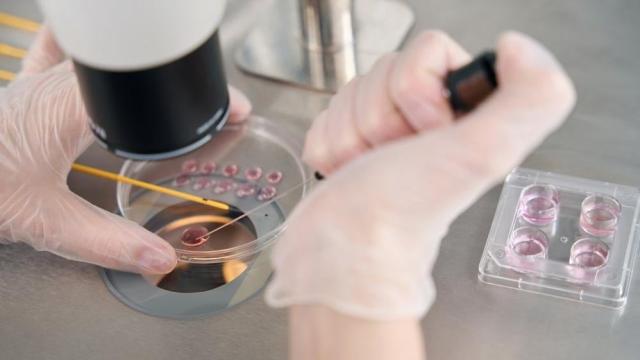Scientists in the United Kingdom and the United States have created synthetic human-like embryos without the need for eggs or sperm. While the embryo does not have a brain or heartbeat, scientists are hopeful that it will shed light on the cause of miscarriages and genetic diseases.
The research team is using the synthetic embryos, in part, to discover why some pregnancies do not continue after the first 14 days of fertilisation. “We know remarkably little about this step in human development, but it is a time where many pregnancies are lost, especially in an IVF setting,” Roger Sturmey, senior research fellow in maternal and fetal health at the University of Manchester in the UK told CNN.
The problem still exists that these synthetic embryos are different from a naturally conceived embryo, which scientists have been trying to study by keeping “IVF embryos alive in a dish for 14 days,” Dr. Ildem Akerman, Associate Professor in Functional Genomics and Diabetes UK RD Lawrence Fellow, University of Birmingham, said in a statement on Science Media Centre.
The scientists say they were able to create an environment mimicking the first 14 days of the foetus’ development outside the womb, though the paper has not passed peer review yet.
Synthetic embryos are creating concern among the scientific community and government in both the UK and the U.S. as concerns about whether the discovery is pushing the boundaries of scientific ethics too far. But Professor Magdalena Żernicka-Goetz who is the lead researcher in the project, told CNN that the embryos were not designed to create new life, instead in hopes of preventing the loss of life.
The synthetic embryos are currently confined to test tubes and can’t legally be implanted in a womb, but researchers have conducted similar experiments on mice and monkeys. Each time they try, however, the synthetic embryos have not survived. And while the recent project has created a buzz surrounding the opportunities to study human life, it has raised questions about how to regulate the research.
A set of guidelines are in the process of being established by lawyers, ethicists, and scientists in the UK to “ensure that research on synthetic embryos is done responsibly,” Prof. Roger Sturmey, a Professor of Reproductive Medicine at Hull York Medical School said in the Science Media Centre statement.
The development still shows potential, according to Prof James Briscoe, associate research director at The Francis Crick Institute, said in a statement. “They could provide fundamental insight into critical stages of human development,” he said.
“These are stages that have been very difficult to study, and it’s a time when many pregnancies fail.” He added, “Fresh insight might lead to a better understanding of the causes of miscarriages and the unique aspects of human development.”
